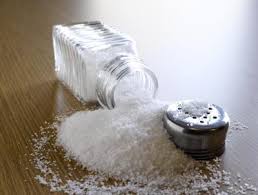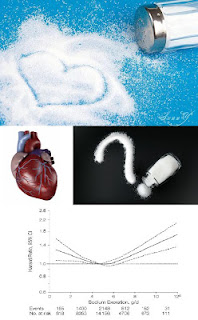World Salt awareness week - Eat less salt
Sodium is a mineral that occurs naturally in nature as sodium chloride, or common salt.
Since ancient times human beings have been adding salt to their food, at first as a primitive method of preserving it against spoilage, and then as a flavor enhancer. Your body needs a little bit of sodium in order to maintain proper fluid balance, but you can get enough from eating fruits and vegetables.
If
a large part of your diet consists of processed and fast foods, you are
almost certainly taking in too much salt. In the body, sodium is
processed by the kidneys. However, when a person eats too much sodium,
the kidneys cannot process all of it. The excess sodium ends up in the
bloodstream. Because the mineral retains water, the volume of blood in
the body increases. As a result, the circulatory system has to work
harder to pump the blood. Over time, this added strain on the system can
result in heart disease and kidney failure.
According to the Harvard School of Public Health, long-term intake of too much salt can damage the kidneys along with the heart and aorta. Salt intake may also raise blood pressure, which can cause damage to the kidney’s nephrons, which filter wastes.
If you must add salt, use just a pinch sea salt.
Since ancient times human beings have been adding salt to their food, at first as a primitive method of preserving it against spoilage, and then as a flavor enhancer. Your body needs a little bit of sodium in order to maintain proper fluid balance, but you can get enough from eating fruits and vegetables.
According to the Harvard School of Public Health, long-term intake of too much salt can damage the kidneys along with the heart and aorta. Salt intake may also raise blood pressure, which can cause damage to the kidney’s nephrons, which filter wastes.
If you must add salt, use just a pinch sea salt.




No comments:
Post a Comment